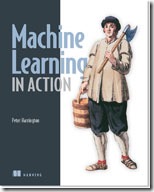Over the years the number of developer conferences seems to have multiplied so much so that there seems to be one on every day of the week. But many of the big name developer conferences charge north of 1000GBP/EUR/USD to attend their spectacles. So why would you attend a developer conference and can it be done on a shoestring?
Why attend?
Recently Ryan Riley asked that very question on Twitter:
There were some great responses:
Seems like there some great reasons why you'd attend.
Where does your money go?
Most speakers don’t charge to talk at an event, although many events will cover their travel and accomodation. Costs wise this leaves hiring a venue, refreshments, organization and advertising.
Unfortunately the balance sheets of most big name events are less than transparent, although Greg Young may be about to change that:
Can I do it on a shoestring?
As well as charging for tickets, many conferences receive money from sponsorship. For some conferences this, along with the sterling efforts of volunteers, covers some or all of the cost. Others offer great early bird discounts for those who book well in advance, meaning you can go to a conference without breaking the bank.
Here’s a selection of keenly priced events I’ll be attending over the next half year or so:
Do you have any reasonably priced conferences you’d like to share?
FsiBot is a cloud hosted bot that evaluates F# expressions in mentions, built by Mathias Brandewinder. Underneath it uses the Twitter API, F# Compiler Services all hosted on Azure.
In the beginning the F# community put a lot of effort into bringing it down testing it’s security. Nowadays it’s become more of a creative outlet for code golf enthusiasts showcasing all sorts from ASCII Art to math.
Christmas Tree
Tomas’s tree first appeared before @fsibot was cool or for that matter even existed:
Circle
An early attempt at ASCII art, the trick in Twitter is to use characters that are roughly the same width:
Invader
Along similar lines this expression uses a bitmap to produce an ASCII invader:
FSharp Logo
Here Mathias uses the same technique to generate a logo:
Bar chart
This expression charts Yes vs No in the recent vote on Scottish Independence:
Sequences
The hailstone sequence:
Pi
Interesting Pi approximation using dates:
Inception
Evaluating an F# expression inside an F# expression:
Rick Roll
The thing about a rick roll is that no-one should expect it:
Magic 8-Ball
Based on magic 8-ball here's a somewhat abridged version:
Have fun!
Last night the F#unctional Londoners Meetup put on a Hands On Machine Learning session at Skills Matter in London. It was a really well attended event, so much so that we had to put a cap on the number of attendees when we reached 70 registrations. The material was recycled from a well received session by Mathias Brandewinder at the San Francisco Bay Area F# User Group in May.
I find F# a very good fit for Machine Learning, in fact my first use of F# was for the player matchmaking on Halo 3.
The goal of the session was to create a digit recognizer using Kaggle’s competition data set.
The first part of the session was to parse and transform the provided CSV files:
let path = @"c:\Digits\digitssample.csv"
let lines = File.ReadAllLines(path)
lines |> Array.map (fun line -> line.Split(','))
Then to implement the K-nearest neighbours algorithm to classify digits. KNN is the first algorithm explained in Manning’s Machine Learning in Action book.

We used a guided script in the session that takes you through the problem in small manageable tasks, each one introducing the necessary F# language contructs required, which you could work through at home too.
Thanks for all the kind feedback:
-
 Finn Neuik
Finn Neuik @finnneuik
great evening at #fsharp UG courtesy of #kaggle, @skillsmatter and @ptrelford : I do like a bit of machine learning!
-
 James Crowley
James Crowley @JamesCrowley
Great evening learning some F# and machine learning with the help of @ptrelford @skillsmatter - thanks Phil!
-
 Andy Brackley
Andy Brackley @andybrackley
Thanks @ptrelford for a great session on machine learning in f#. Excellent content and presentation
-
 Chris Austin
Chris Austin @cja117
@ptrelford thanks for a great #fsharp workshop at #SkillsMatter in London.
If you’re interested in learning more check out:the Machine Learning with F# page on the F# Software Foundation site which includes plenty more tutorials.